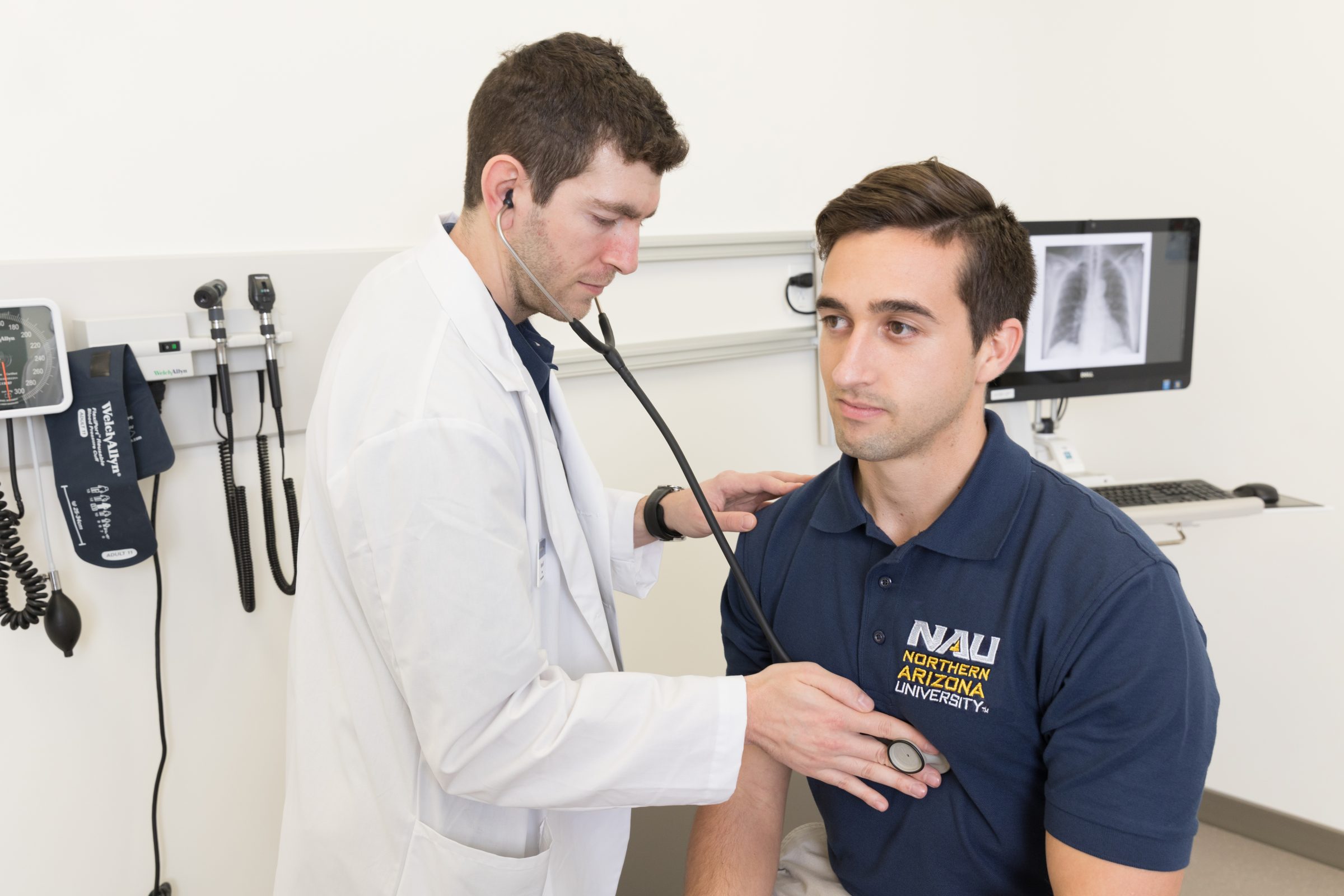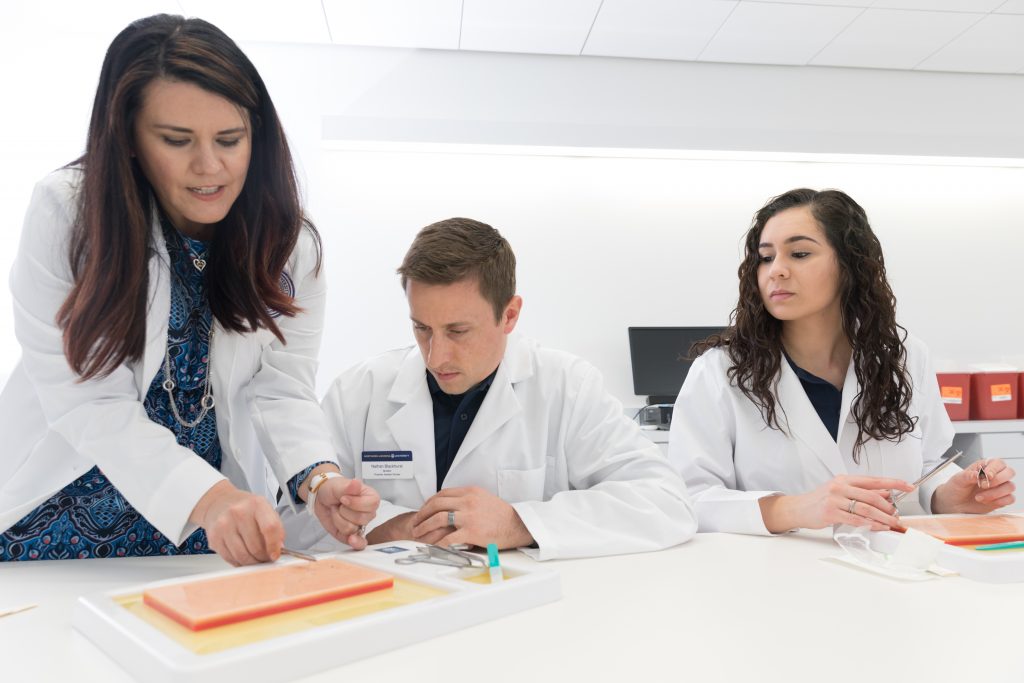NAU’s Department of Physician Assistant Studies receives nearly $900,000 to expand substance use disorder education
NAU’s Department of Physician Assistant Studies recently received a $898,779 grant from the Substance Abuse and Mental Health Services Administration (SAMHSA) to fund a three-year effort to expand education for PA students on substance use disorder (SUD).
The grant includes a comprehensive education and training program for students in the NAU PA Program and interdisciplinary learners including currently practicing primary care providers in the state of Arizona. This project aims to increase students’ and clinicians’ capacity and confidence to deliver evidence-based care for people with SUD, with a focus on rural and underserved communities.

PA students will receive enhanced training in the screening, assessment, and management of people with SUD through direct clinical training experiences in mental health, and SUD clinical partners in the training grant include Circle the City, Regional Center for Border Health, Comprehensive Medical Services, and Yuma Regional Medical Center.
Additionally, the department will partner with health professions programs to implement Project ECHO©. Project ECHO© is an evidence-based continuing medical education model used to build communities of practice and improve care for people with SUD.
Project ECHO© is designed to provide free medical education using interactive video technology (ZoomTM). Project ECHO© connects geographically dispersed interdisciplinary learners, including practicing clinicians with evidence-based information to treat patients in their local communities. Sessions are live, held twice per month, and last less than one hour. During these sessions, learners meet with subject matter experts in a specific discipline (in this case, substance use disorder). Subject matter experts may include professionals in social work, health policy, addiction medicine, pharmacy, occupational therapy, and others. Each Project ECHO© session includes introductions, a brief lecture, and then discussion and consultation on a case study brought forward by learners. The integration of anonymized case studies is one of the most unique aspects of Project ECHO©, providing primary care clinicians and their teams with expert knowledge to deliver care in their communities. This approach ensures patients receive timely, cost-effective care.

In the next few months, the research team will work closely with clinical and academic partners to develop a chronic illness- and recovery management-focused curriculum for Project ECHO©, and they will recruit PA students to complete SUD training in rural and underserved communities.
“We know that people living in rural and underserved areas rely heavily on their primary care providers like the PAs we educate and train. On any given day, PAs may have a patient needing treatment for breathing issues, another patient needing prenatal care, and another with substance use disorder. Our students need to be well prepared to support all their patients. We are proud to enhance the education they receive while also supporting the clinicians already working in the field,” said chair Alison Essary.
NAU’s Department of Physician Assistant Studies mission is to educate individuals from inclusive backgrounds and lived experiences and graduate physician assistants who provide high-quality, compassionate medical care to the people of Arizona. To learn more about NAU’s Department of Physician Assistant Studies.

